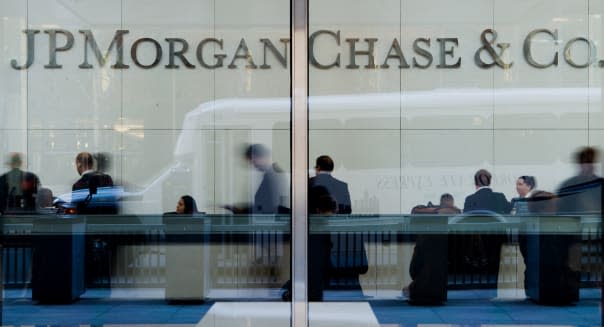Investment Banks Won't Recover from Bond Flu Anytime Soon

It was the kind of earnings result no investor ever wants to hear from their company. For its first quarter of 2014, JPMorgan Chase (JPM) reported an 18 percent year-over-year drop in revenue in its markets and investor services segment, essentially the stocks/bonds/currency trading arm of its operations.
The unit was responsible for nearly 25 percent of the sprawling company's overall quarterly revenue. That 18 percent drop played a major part in the decline of that grand top-line total to $23.9 billion from the $25.8 billion in the same quarter of 2013.
JPMorgan Chase wasn't the only big financial suffering from comparatively weak results in investment banking. Other giants, such as Bank of America (BAC) and Citigroup (C), have had a similar problem. Those sorts of companies are crafty finance veterans and have traditionally been very good at squeezing money out of the capital markets. Why are they struggling with them just now?
In a word: bonds.
Neither a Borrower Nor a Lender Be
Trading in the classic fixed-income security has fallen notably in recent months, due in no small part to the retreat of one of the biggest buyers on the market: the Federal Reserve, which is winding down its latest round of quantitative easing. That fancy-sounding term describes what is essentially a massive bond-buying program, in which the Fed spends billions of dollars to inject new money into the financial market. This, theoretically, gives banks more cash to lend and thus stimulates the economy.
But no economy can rely on its central bank to keep spending it out of trouble indefinitely. The Fed began to taper its purchases at the beginning of this year, shaving $10 billion a month from the program each time the FOMC meets. In December, it spent $85 billion on such buys; this month the total will be $45 billion.
The effect on the bond market has been dramatic. Average daily trading volume for bonds totaled $688 billion this past January, down 21 percent from the same month of 2013.
What Goes Down Must Come Up
The other millstone dragging down the fixed-income market is the current state of interest rates. These are at historical lows -- one big reason loans such as mortgages are so cheap these days. Interest rates will have to change, and since they're close to the floor, the only direction they can go is up -- likely soon.
%VIRTUAL-article-sponsoredlinks%Speculation is rife that the Fed will make a rate hike sometime next year. It stands to reason that when rates rise, existing debt instruments pegged to the old, lower rate bonds will plunge in value. No big player wants to get caught with a fat portfolio of skinny-rate bonds when that happens.
All banks active in fixed-income trading have this flu. Bank of America's take from the activity declined 15 percent on a year-over-year basis in its first quarter. The timing for Bank of America is particularly lousy, given that it's recently been socked by a number of high-profile, high-cost legal difficulties stemming from its conduct around the time of the financial crisis at the end of the last decade.
It's not only U.S. lenders that have caught the bug. Veteran British banking house Barclays (BCS) saw a 41 percent slide in fixed-income trading in its first quarter, to around $2 billion from $3.5 billion in the same quarter of 2013. That sluggish performance from the bond trading desk was a heavy contributor to Barclays' notable decline in overall investment banking revenue, which dropped 27 percent on a year-over-year basis to roughly $4.2 billion.
Market Malaise
Unfortunately, with the current version of quantitative easing on the way out and interest rates on the way up, it doesn't look like the situation will change anytime soon.
JPMorgan Chase said recently that it expects a 20 percent decline in its markets revenue for the current quarter compared to the same period of 2013. If realized, that decline -- in league with the first quarter drop -- will result in the worst first half-year result for the markets unit since the financial crisis.
Given the recent developments and the gloomy outlook for bonds, we can hazard a pretty good guess as to what asset class will be most responsible for that performance.
Motley Fool contributor Eric Volkman has no position in any stocks mentioned. The Motley Fool recommends Bank of America, andit owns shares of Bank of America, Citigroup and JPMorgan Chase.


